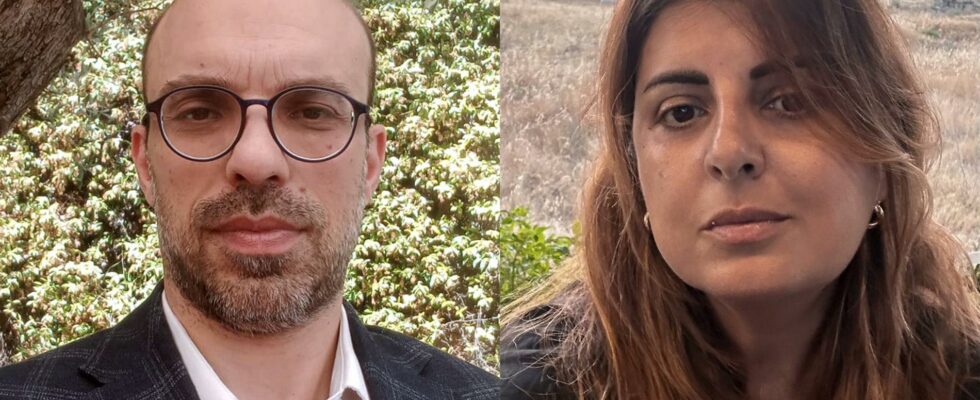unsaveSave
expand-left
full screen Mohamad Halabi, left, and Jumanah Zabaneh testify about the explosions in Beirut. The picture is a montage. Photo: Private Images Via TT
In an already crisis-ridden country, ordinary pagers and walkie-talkies have suddenly exploded like thousands of small bombs.
Worried Beirut residents unplugged electronics at home.
– You try to understand how to protect yourself, but it doesn’t seem possible, says mother of two Jumanah.
Jumanah Zabaneh, 48, feels some tension when she talks to TT by phone from Beirut, after Tuesday’s explosions.
– What happened makes us all afraid of our own electronic devices, she says.
– I am talking on my mobile phone now and it is as if it could explode at any moment, if there had been any intrusion.
As the explosions took place across the country on Tuesday, her family pulled all the cords early and took batteries out of devices at home.
Sirens all night
The family lives between two of Beirut’s two largest hospitals. During the night of Wednesday, they were kept awake by persistent ambulance sirens.
– It is difficult to explain to my children: What is happening, why, and this public campaign to donate blood. People go and give blood, people are in need of blood, you see blood. There will be blood everywhere, says Jumanah Zabaneh.
When the daughters, nine and eleven years old, have asked why they cannot go to school, the mother has said that it is because Israel has attacked and injured a lot of people.
– And that the hospitals are full and that there will be a lot of traffic. And that many people are grieving or are busy taking care of their loved ones, says Zabaneh, who doesn’t want to say more and risk making the kids afraid of their phones and tablets.
That the attack could be said to have been entirely aimed at the Islamist movement Hezbollah, she does not give much credit for:
– Some devices exploded in people’s homes, in street markets, in grocery stores. Children were killed.
Rushed home in terror
The confusion was great at first, Beirut resident Mohamad Halabi tells TT over the phone.
– We thought that everyone who had a pager would explode, and feared that it could happen to mobile phones as well, says the 48-year-old father of two.
Terrified, Halabi hurried home from work. In the car, he was passed by scores of motorbikes with injured or bandaged people on their way to or from hospital.
– There was a lot of traffic and queues. I hoped nothing would happen before I had time to get home and put the phones away from my children.
The picture of what happened then began to clear, but he did not let his teenage daughters watch TV in the evening so that they would not be frightened. Everyone is already scared, says Halabi:
– For my part, I realized that if something were to happen, if a war were to break out here, we might not be able to get treatment in a hospital but would have to fend for ourselves.
FACTS More than two thousand injured
On Tuesday afternoon, large numbers of pagers that are said to have belonged to members of the extremist Islamist Hezbollah movement suddenly exploded in Lebanon.
The explosions took place simultaneously in several areas in Lebanon, but also in Syria.
In many places, the explosions took place in public places in the middle of the afternoon rush hour, when many people were buying groceries, sitting in cafes or in rush hour traffic.
At least 2,750 people were injured, according to Lebanese health officials. At least nine people have been killed, including a girl.
Hezbollah singles out Israel as responsible, which is supported by sources in international media reports. The events have not been commented on from the Israeli side.
During Wednesday, further explosions took place in Lebanon. According to local authorities, the explosions are linked to walkie-talkies used by Hezbollah.
Since the war in the Gaza Strip broke out with the Hamas terrorist attack on October 7, Israel and Hezbollah have attacked each other on a daily basis. Several leading politicians in Israel have recently advocated all-out war against Hezbollah, which is a much larger and more well-equipped enemy than Hamas in Gaza.
Read more
